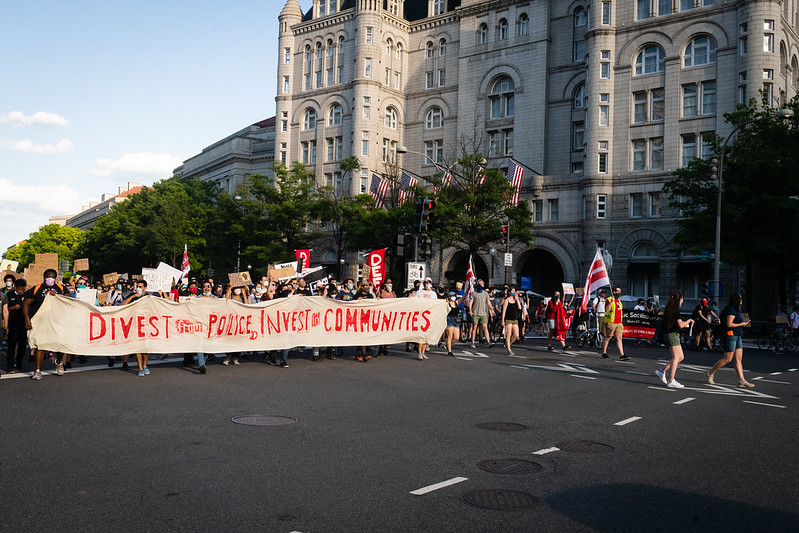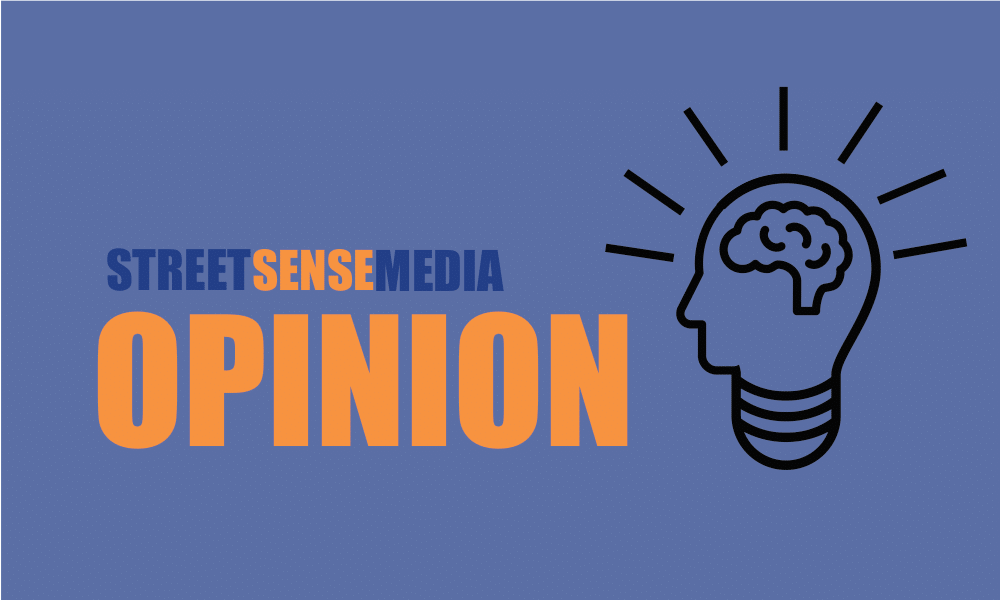As a case manager with Street Sense Media, I am privy to the multifaceted ways in which homelessness affects our vendor community. Some are physical, like the bone-deep chill and bleary-eyed exhaustion one feels after spending a restless night outside. Some are social, like the feeling of indebtedness to loved ones that comes when one needs to keep asking for help. And some are personal, cutting to the core of one’s humanity, like this anecdote.
On Friday, November 27th, Lissa and I did outreach near Union Station. We started up by the L and M Street encampments and came down around the terminal toward the tents on the west side. As we passed the front entrance, we stopped to pass out some chapstick and disinfectant wipes to a kind, middle-aged man and caught the attention of one of the security guards. Realizing that our duffel bag was full of resources for people experiencing homelessness, not clothes for holiday travel, he kept an eye on us as we began to engage the next cluster of men.
These three wanted whatever we had to offer — socks, gloves, hand warmers–so we planted ourselves, unzipped our outreach bag, and started distributing our wares. Within thirty seconds, the guard had marched around the side of the building, crossed the street, and directed the three men to move it along. He did not address me or Lissa and gave no reason for his order.
Initially, the five of us tried to reason with the guard — don’t worry, we’ll move as soon as everyone gets what they need! — but our rationale fell on deaf ears. The three men laid in, asking why they couldn’t catch a break, asking why the guard had to create this problem. One asked why this had to happen right after he had spent Thanksgiving without any family. Of course, neither logic nor shame trumped power, and the guard wouldn’t budge. We gradually dispersed, Lissa and I in silence, the three men in shouts and tears.
Reeling, I thought to myself, This is what policing homelessness looks like. I couldn’t believe it, and at the same time I definitely could. The guard’s message was clear: For these men to receive basic human necessities was unacceptable. Their poverty deserved surveillance, and any attempt to alleviate it deserved interruption. The fact of their existence was the problem.
Now that many more people have been brought into the conversation around police violence over the past six months, it is important to recognize that this guard’s behavior stems from the same place, even though he doesn’t derive his authority from a role in law enforcement. This systemic refusal to see Black people and homeless people — too often one and the same — as human beings denies these three men fresh socks just as it sends bullets into their community.
Because this racism is so widespread, the means of dismantling it must vary by context. In situations like this one, I think a good starting point is to bear witness. As the only white person in this whole interaction, I stood to take my own advice. Speaking up stronger and standing my ground longer would have put me in far less danger than it put these Black men. And, if other passersby, particularly other white people, stopped and did the same — or even made it clear that they were watching — our public pressure could have mounted against the guard in a true show of public safety.
Later that afternoon, our path looped back around Union Station, past the guard’s post. I still felt shaken up, and I still felt outraged, but those feelings were already becoming numb. I can’t presume to know what emotions or self-perceptions the three men carried with them, but I doubt they were positive. In any case, they continued to go without the warmth and the cleanliness our outreach supplies would have provided. Meanwhile, without any visibly homeless individuals in the vicinity, I watched the guard instead focus on the football highlights one of his co-workers was streaming, whooping and hollering away.
Charlie Musoff is a case manager with Street Sense Media.





